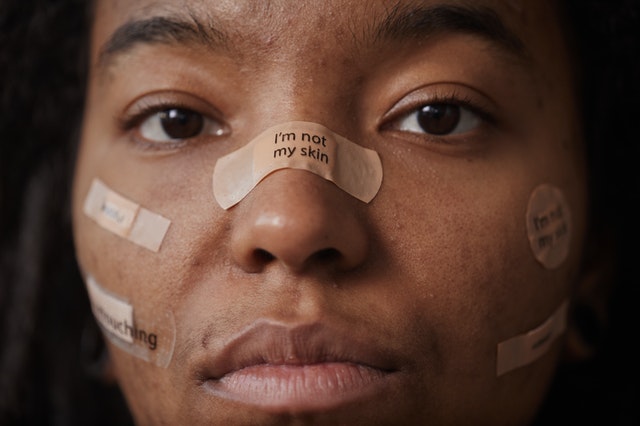Stress breakouts are irritating. Aside from your actual stressors, there is also the additional problem of dealing with acne all over your face. It’s a major hassle that can stress you even more, which in turn worsens your breakouts.
Regardless of age or gender, everyone can be susceptible to breakouts because stress chooses no one—especially during this pandemic. The world shifted where interactions became limited, and connections were lost. People were forced to deal with the sudden loss of the lives they used to know. This change affected work, leisure, and relationships, taking a toll on people’s mental and physical health.
People coped in different ways. But during these stressful times, acne is one of the common responses of the body. However, these breakouts aren't triggered by the actual feelings of anxiety or distress. They are the accumulation of its effects like lack of sleep, unhealthy diet, depression, or other health concerns.
What triggers a stress breakout varies from one person to another. It depends on factors like hormones, skin type, lifestyle, and even genetics. So if a person has oily skin or has a family history of acne problems, then stress can increase the chances of breakouts.
But don’t worry! If you’re currently experiencing a breakout, there are many ways to relieve it. Here are pieces of advice and practices that you can try to tone down those pesky acnes!
Clean your skin with the right cleanser
Everyone has their skin rituals. While most do the minimum, which is washing their face with water, it is not enough.
Your skin must be clean not just on the surface, but also deep within. Choosing the right cleanser can do wonders to ease the redness and size of your pimples. There are neutral pH cleansers and facial moisturizers that do the trick to make your breakouts manageable.
Also, you can opt for more specialized skincare like Vitamin C serums or Vitamin A creams to get rid of your sick skin and help your face to keep hydrated. These will greatly help minimize acne flare.
Find the anti-acne product that fits you
Many products in the market can help you fight acne, like topical benzoyl peroxide or salicylic acid. These ingredients are both common in anti-acne products that you can find anywhere. Pimple patches are also a choice as a spot treatment.
You can also go natural. Explore the benefits of coconut oil to your skin. You can either apply it directly onto your face or mix it with your food to clean your face from the inside out. However, avoid applying oil when you have oily or acne-prone skin as this can trigger more breakouts.
There are also a lot of cases of stress acne caused by hormonal imbalances and other health concerns. Before taking any supplement or pill, get a prescription from your doctor to properly gauge if it is the right medication for you.
Remember, whatever method you want to use, you need to consult it first with a professional health adviser or dermatologist. This is because products, whether bio-developed or natural, can have adverse effects on your body if not administered properly.
Refrain from touching your face
It can be tempting to pick on your face and squeeze those pimples—but don’t. Doing so will only worsen the situation. As much as possible, make it a habit not to touch your face at all, unless you are cleaning it. Pollution, dirt, oils, and sweat from your fingers can stimulate acne growth. So, keep your hands off your face, especially when you are stressed.
Patches and masks for your face can help you prevent touching your face. But, it is not recommended all the time as it may irritate your skin than protect it. Discipline is the key here. So, every time you feel your hands itching to pop that big red zit, control the urge and turn your attention to other things.
Practice not touching your face regularly and make it a habit—your skin will thank you later on!
Live a conscious life
It can be tiring to hear advice like drinking eight glasses of water a day or getting a good night’s sleep. Because sometimes, it’s not even possible to get up and start the day because of the stress that is pulling you down.
However, it doesn’t erase the fact that hydrating, eating healthy, and doing things that make you happy undeniably have positive effects on your life. But you don’t have to do it all at once. You can start on it, little by little.
Exercise when you can, but make it consistent; include it in your schedule. Slowly increase the hours of your sleep by adding time in the night, not in the morning! Moderate consumption of food that affects your skin like dairy and oily foods (it increases the chance of having acne), caffeine (it dehydrates your skin), and carbohydrates (it worsens your acne breakout).
There will be times that you will regress while anxiety keeps you from the routines you’ve established and that’s okay. Don’t be too hard on yourself. Just try and try until you feel like yourself again.
Revisit and relearn the things you enjoy
Stress can make you forget what it feels like to enjoy or to feel beautiful in your skin. You may wake up most days hating or blaming yourself. When these happen, try to take a breather. List things you like about yourself in a personalized body positivity journal. It is a jumpstart to help you accept who you are—flaws and all.
You can also go on a vacation. Spend your work leaves. Treat yourself to a spa day or just play your favorite video game. These internal sources of peace can also help you and your skin recuperate.
Bottom line: Stress breakouts affect your skin and well-being
Breakouts can have a detrimental impact on a person’s self-image. It is why a balance of physical and emotional interventions is needed to keep your skin, mind, and heart-healthy.
 Author bio: Bash Sarmiento is a writer and an educator from Manila. He writes laconic pieces in the education, lifestyle, and health realms. His academic background and extensive experience in teaching, textbook evaluation, business management, and traveling are translated into his works.
Author bio: Bash Sarmiento is a writer and an educator from Manila. He writes laconic pieces in the education, lifestyle, and health realms. His academic background and extensive experience in teaching, textbook evaluation, business management, and traveling are translated into his works.
Links:




Leave Comment